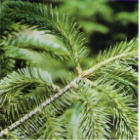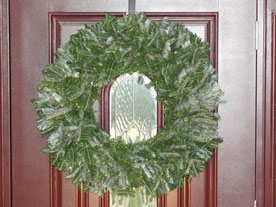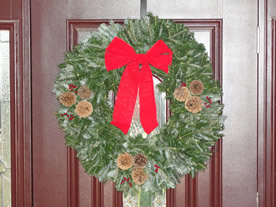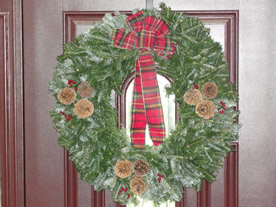Wholesale Christmas Tree Types
Real Trees are a renewable, recyclable resource. Artificial trees contain non-biodegradable plastics and possible metal toxins such as lead. Brown's Tree Farm is proud to offer a full selection of Real Christmas Trees. We grow eight species ranging from 3' to 18' tall. Browse below to view images and descriptions for each of the tree types we grow.
Attention: Brown's Tree Farm currently has stock of all tree types, except for Scotch Pine and White Pine. We currently have a 300 tree minimum on all orders.
- Balsam Fir
- Black Hill Spruce
- Blue Spruce
- Concolor Fir
- Douglas Fir
- Fraser Fir
- Scotch Pine
- White Pine
- Wreaths
|
 |
The Black Hills Spruce, Picea Glauca Var. densata, is noted for its dark green foliage and conical form. Black Hills Spruce trees are very dense and have a deep dark green color. It is a truly cold adapted tree and is very resistant to winter injury. It prefers rich moist soil in full sun, and also thrives in dry, well-drained sites. Growth during the first 10 years after field planting is relatively slow and 8 to 11 years are required to grow a 6-7 foot tree. |
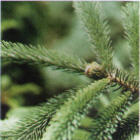 |
 |
Blue spruce is finding increasing popularity as a Christmas tree as a result of its symmetrical form and attractive blue foliage. The species has an excellent natural shape and requires little shearing. Additionally, needle retention is among the best for the spruces. Its popularity as an ornamental leads many consumers to use blue spruce as a living Christmas tree, to be planted after the holiday season. Growth during the first 10 years after field planting is relatively slow and 8 to 11 years are required to grow a 6-7 foot tree. |
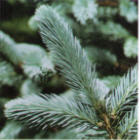 |
 |
As a Christmas tree, white fir has good foliage color, a pleasing natural shape and aroma, and good needle retention. | 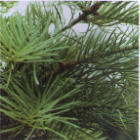 |
 |
Nationally, Douglas Fir remains one of the most popular Christmas trees species. It is shipped to the majority of the states and is also exported to the Hawaiian Islands, Guam and some Asian markets. Plantation trees are normally sheared and will produce a crop within 7 to over 10 years depending upon the site and growing area. |
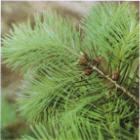 |
 |
In many respects, Fraser fir and balsam fir are quite similar, although the geographic ranges of the two species do not overlap. Some scientists even suggest that because of the many similarities, the two species were once a single species which has since evolved into the present-day forms. The combination of form, needle retention, dark blue-green color, pleasant scent and excellent shipping characteristics has led to Fraser fir being a most popular Christmas tree species. It requires from 7 to 10 years in the field to produce a 6-7 foot tree. |
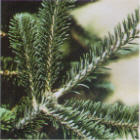 |
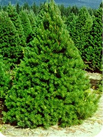 |
As a Christmas tree Scotch pine is probably the most commonly used species in the United States. Because of its ease of planting, generally high planting survival and favorable response to plantation culture it has been widely planted throughout much of the eastern United States and Canada. For several years it was the favorite species of large eastern wholesale growers because of its excellent harvesting and shipping qualities. It is also a preferred species for many choose and cut growers in much of the eastern and central United States. When established in plantations usually 6 to 8 years are required to produce a 7 to 8 foot tree. |
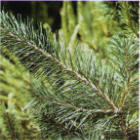 |
 |
For Christmas trees, sheared trees are preferred, although some people feel shearing results in trees too dense for larger ornaments. Needle retention is good to excellent. White pine has very little aroma, but, conversely, is reported to result in fewer allergic reactions than do some of the more aromatic species. To produce a 6-foot tree requires 6-8 years on good sites. When established in plantations usually 6 to 8 years are required to produce a 7 to 8 foot tree. |
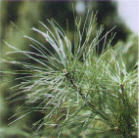 |
Note: Portions of this documentation was provided by the National Christmas Tree Association.


